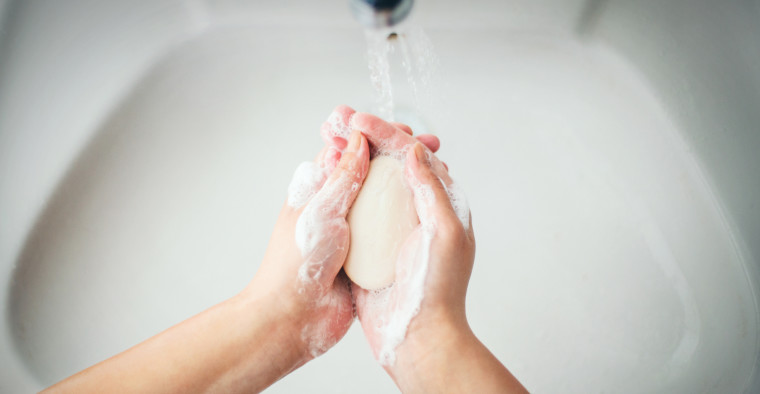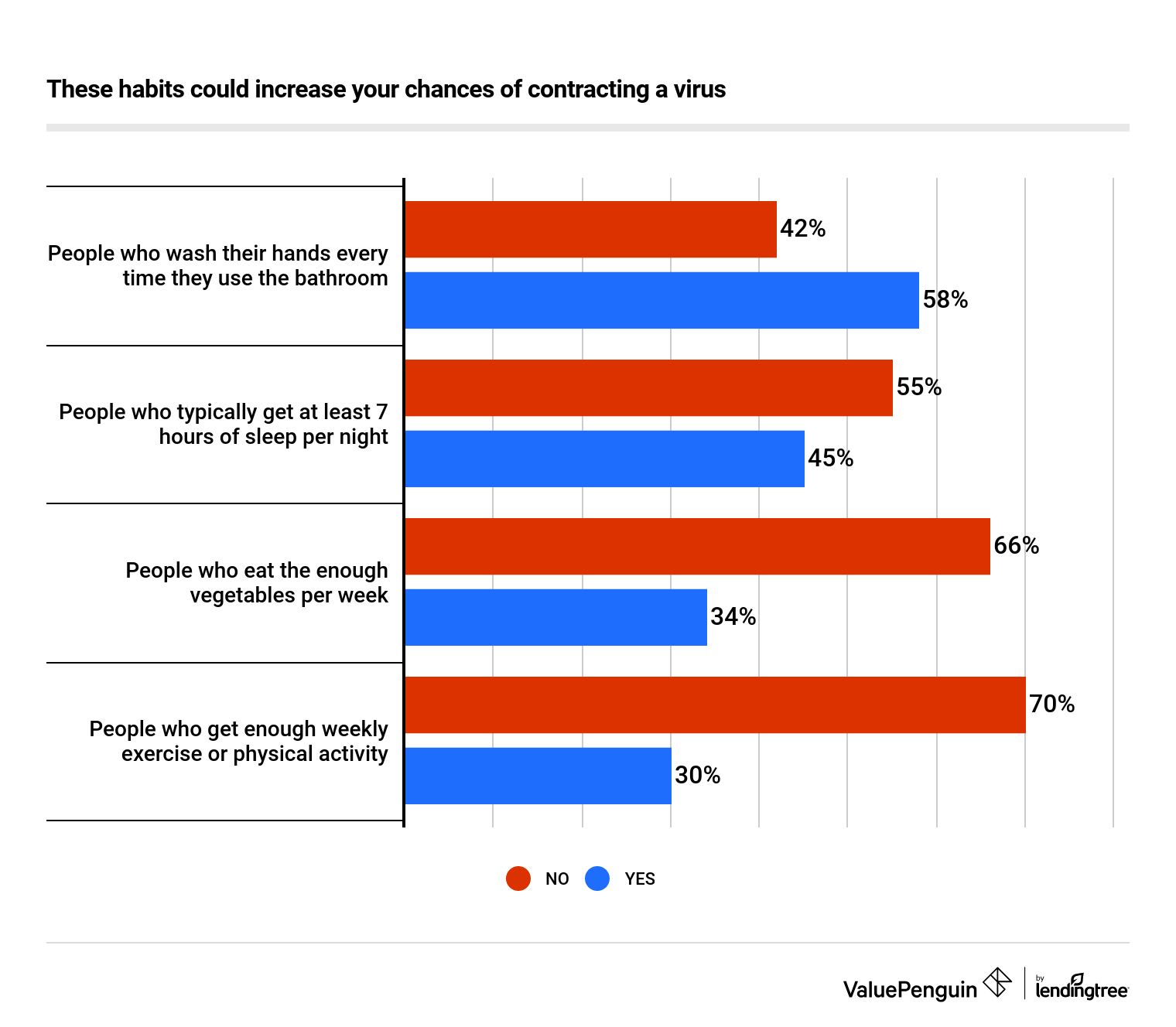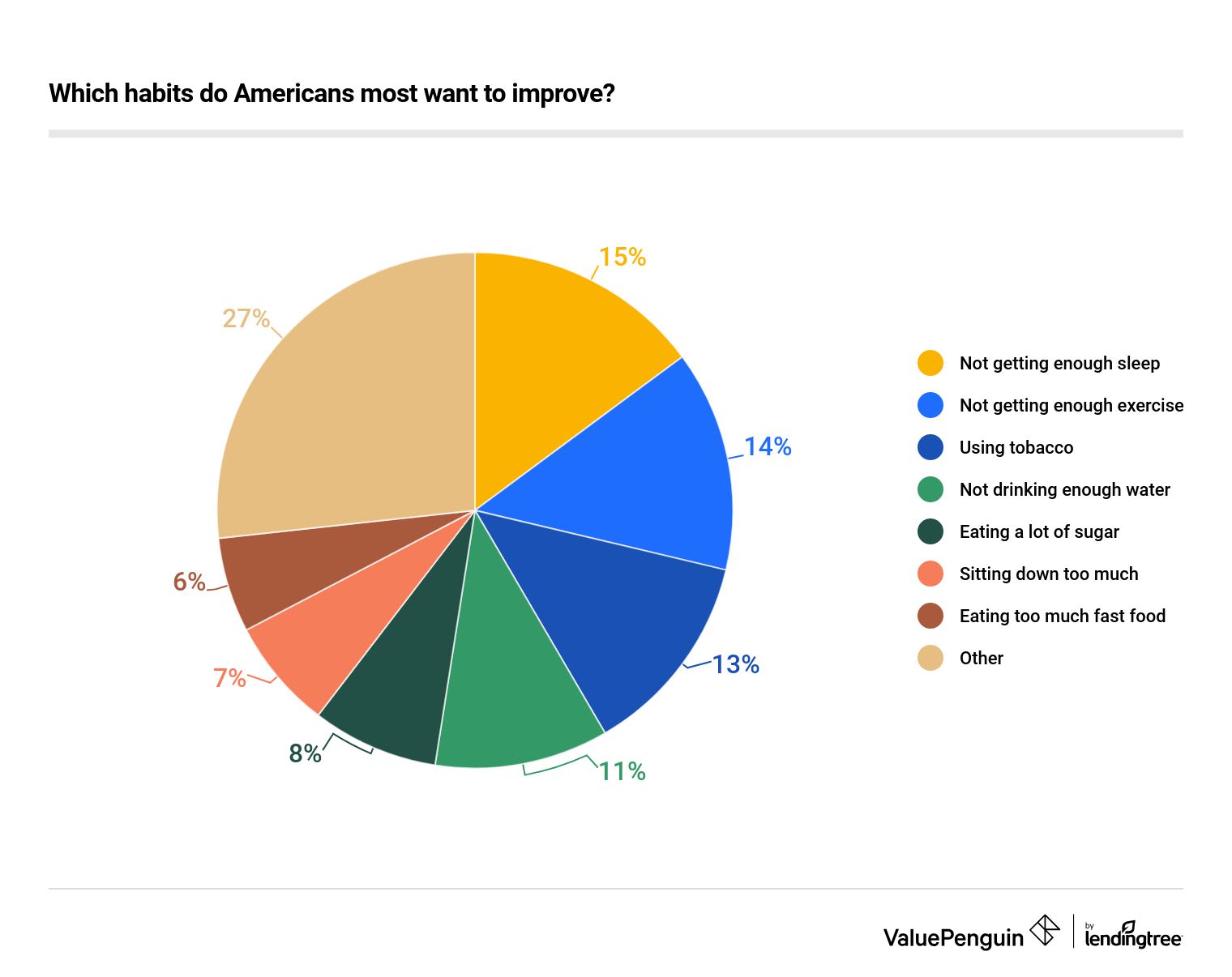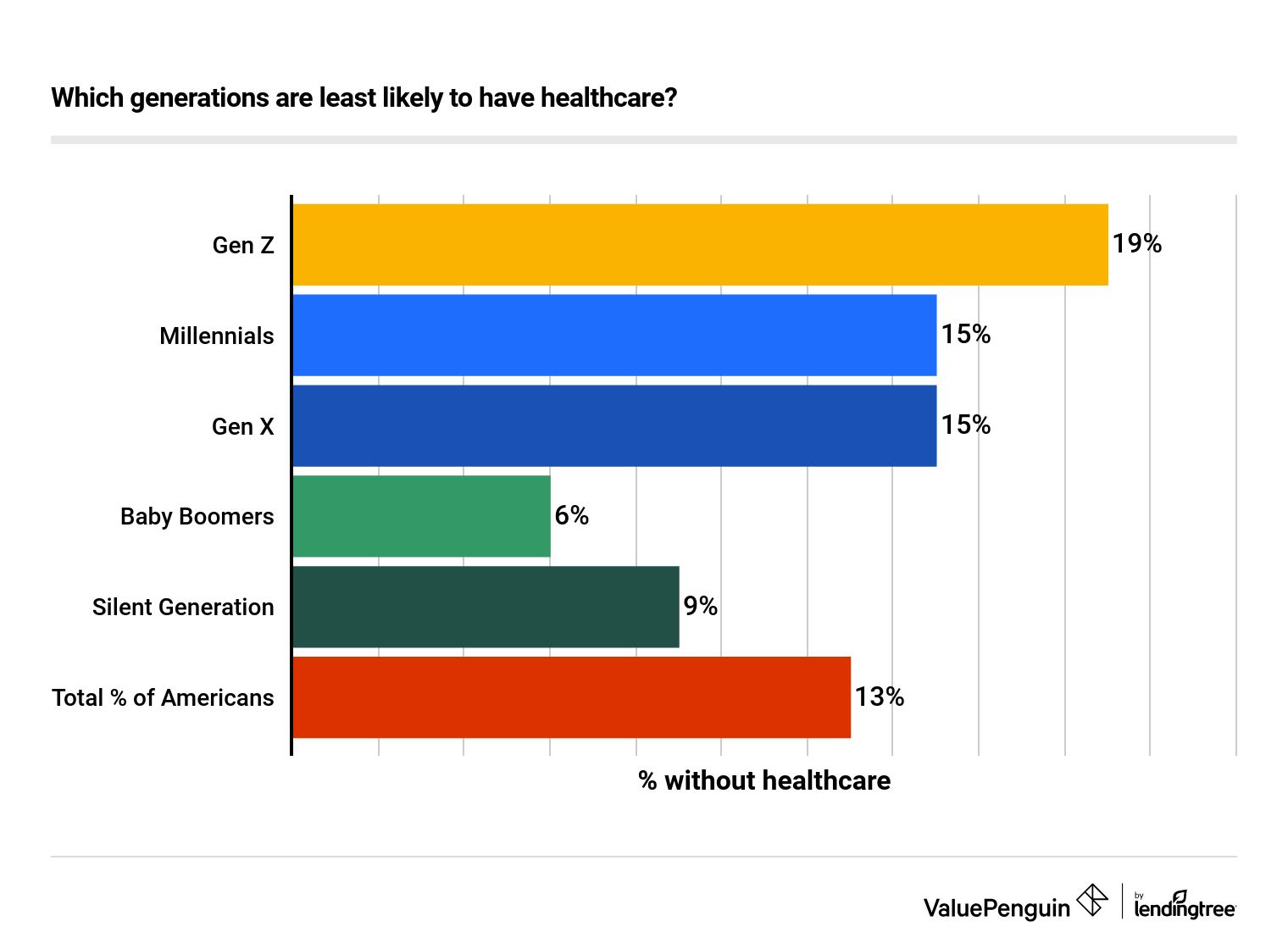Health Insurance
Americans Aren't Doing Enough to Stay Healthy

ValuePenguin found that many Americans admit to habits that could pose health risks to themselves and the general public. The prevalence of these habits underscores the ease with which viruses such as the novel coronavirus (COVID-19) might spread quickly throughout the community.
While about three quarters of Americans are at least somewhat concerned about their health, many don't consider the negative effects that certain small actions could have on their communities' health. For instance, more than four in 10 people don't wash their hands every time after using the restroom.
This oversight, and others like it, becomes more jarring when one realizes the number of other Americans who are vulnerable to disease, including the growing number of those who lack access to preventative care — for example, we found 13% of people don't have health insurance.
Key findings:
- Many Americans could be exposing themselves to infectious diseases by practicing poor hygiene, including the 42% of people who don't wash their hands every time after using the bathroom.
- Americans' poor sleep and dietary habits could make spreading a virus or disease easier.
- Over half of Americans fail to visit a physician for an annual checkup — and some report lying about their health when they do go.
- More than 25% of Gen Xers and millennials — as well as more than one-third of Gen Z— would go to work sick.
- Over 20% of people have lied to their employer or insurer about their health, including a sizable number of millennials and Gen Xers.
Despite more than 70% of people being worried about their health, their bad habits could still cascade and create problems for themselves and others
The most concerning habit commonly practiced by people is that many don't wash their hands after using the restroom. In light of the coronavirus pandemic, it's easy to see how this could expose someone to infectious germs — especially since 18% of people also admit to regularly biting their nails.
Conduits for infection exist elsewhere, too. A little more than 45% of Americans report sleeping next to their phones. The surface of a cell phone can contain millions of bacteria, including species which can cause serious and sometimes fatal diseases like pneumonia and meningitis. Sleeping near a phone can also contribute to poor sleep.
Our survey suggests that poor sleeping habits are widespread. About 55% of people concede to getting less than seven hours of sleep per night. Generationally, this problem is endemic to younger and middle-aged people: 70% of Gen Z, as well as six in 10 millennials and Gen Xers, sleep fewer than seven hours a night.

Insufficient sleep combined with poor diet can contribute to someone's likelihood of contracting an illness, especially if they're already susceptible to germs from other sources — like not regularly washing their hands.
According to the USDA, adults should have at least one serving, or two cups, of vegetables per day. However, 65% of people eat fewer than the recommended amount of vegetables per week. Moreover, four in 10 adults eat fast food more than once per week, including four in 10 millennials and Gen Xers.
Compounding the risk of a poor diet and lack of sleep is the fact that 70% of people don't get enough exercise. The federal government recommends about two-and-a-half hours of physical activity per week to protect yourself against heart disease and some forms of cancer. However, only three in 10 people work out for even two hours per week.
Many people fall short of taking adequate measures to maintain or improve their health, including more than half who don't regularly visit the doctor
While the habits of numerous people can lead to or contribute to poor overall health and an increased vulnerability to illness, many Americans don't take proper steps to ensure their long-term health. For instance, 53% of Americans don't visit the doctor for an annual checkup.
This includes six in 10 men, who are more prone to heart disease and other life-threatening conditions, according to Harvard Health Publishing. Some people who do visit their doctors report lying about their health — mainly members of Gen Z, of whom about 18% acknowledge that they've lied to their health professional.
Sick Americans can also protract the dangers of an infectious disease by transmitting it to other people, including family, friends and coworkers. One third of Gen Zers knowingly go to work while sick. While a sizable number of these people may have no other choice without adequate sick leave, the spread of the novel coronavirus has shown the danger of this behavior.

People are willing to take action to improve their overall health by correcting their risky habits. About one third of Americans want primarily to change habits related to diet and exercise, including eating more vegetables and cutting down on sugar. Additionally, many cite a desire to cease smoking — of all smokers, about half want to quit.
Even for people who want to practice healthier habits, there are other circumstances that stand in their way
While accounting for certain harmful habits can go a long way toward improving someone's overall health, it may be more difficult for some people to take the necessary steps if they don't have access to health-care professionals and preventative care.
Around 13% of people don't have health insurance. Over 19% of Gen Zers aren't insured, along with 15% of millennials. When set alongside data from the Census Department, our survey suggests that the total number of uninsured Americans is rising.

Complicating this trend is the revelation that 21% of people report lying to their employee-sponsored health insurance providers. A third of each of the Gen X, millennial and Gen Z populations are guilty of making this falsehood — an act of insurance fraud that can result in jail time and loss of coverage.
If you're unemployed or aren't eligible for employee-sponsored health insurance, there are other ways to access affordable coverage. Generally, the cheapest health insurance option is Medicaid, a federal program for individuals and families whose earnings fall below certain thresholds. If you don't qualify for Medicaid, the Affordable Care Act enables you to shop for health insurance on your state's marketplace.
Methodology
ValuePenguin conducted an online survey of 1,311 Americans, with the sample base proportioned to represent the overall population. The survey was fielded using Qualtrics from Feb. 27-March 4, 2020 — before the COVID-19 coronavirus was classified as a pandemic.
